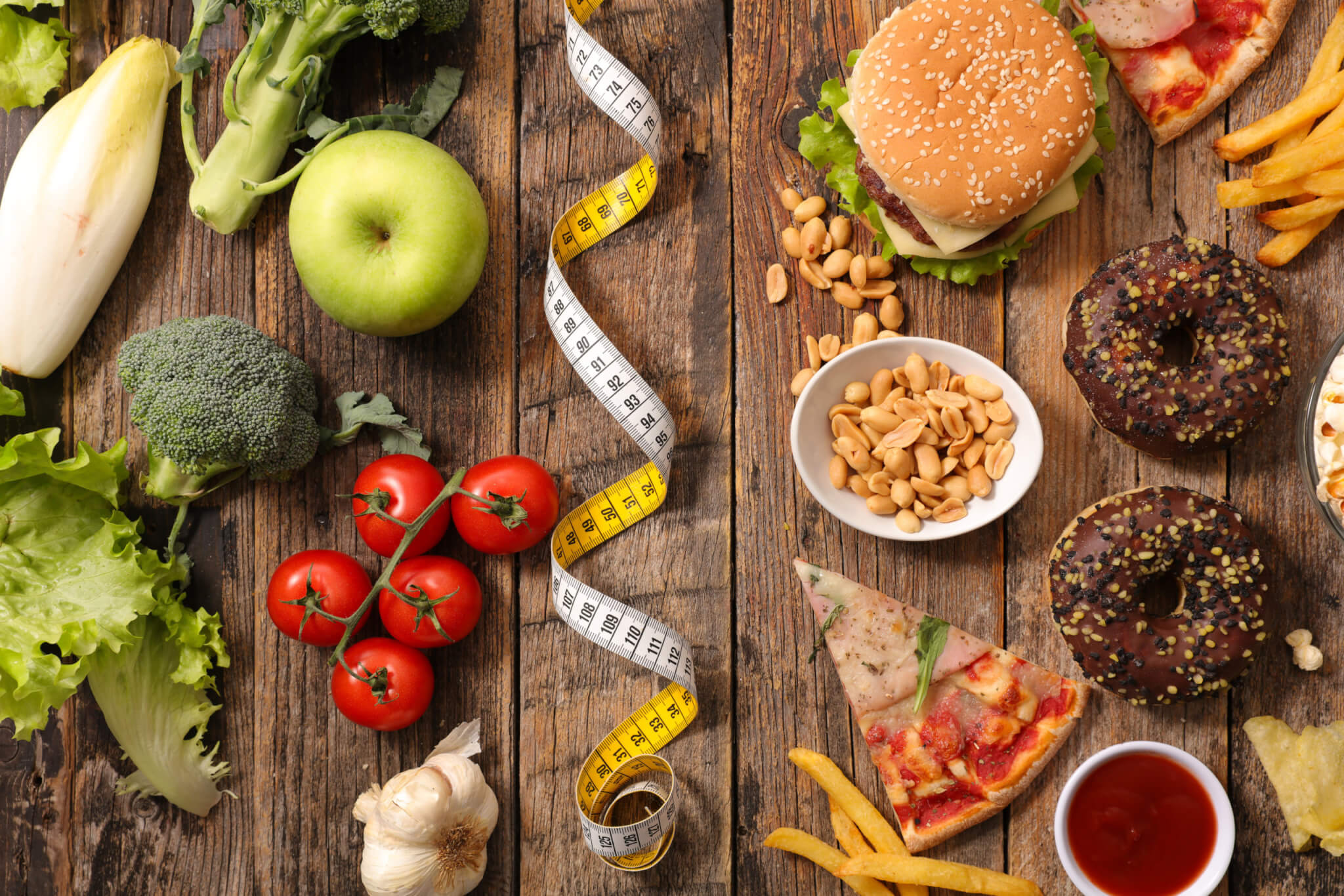You’ve likely experienced that mild burning sensation in your chest after eating certain foods or laying down too soon after consuming a meal. Many people experience acid reflux, or heartburn, randomly, and immediately open the medicine cabinet to reach for the TUMS, but is that the most effective method to get rid of symptoms? We wanted to find out, so we searched the web to find the consensus best ways to soothe heartburn, according to health experts. We’ve listed the top five here for you.
If you do suffer from heartburn or any other gastrointestinal disorder, you may be surprised to learn that it’s extremely common – as in, almost half of all adults worldwide suffer from these issues. Research finds that four in ten adults around the world are battling some type of gastrointestinal disorder. Over 73,000 people in 33 countries were surveyed about their stomach issues. Nearly half of the women questioned were found to have at least one functional gastrointestinal disorder (FGID). And these FGIDs can show up in a variety of forms such as heartburn, acid reflux, indigestion, constipation, bloating, or even irritable bowel syndrome (IBS). And, unfortunately, those suffering from FGIDs are likely to visit the doctors more often than those without these issues. They’re also more likely to undergo surgical procedures.
Something to be wary of is if you have a more serious case of acid reflux and your doctor prescribes you proton pump inhibitors (PPIs), you could end up worse off. Prior research has shown that taking PPIs for extended periods of time can cause serious kidney damage. But, Dr. Ziyad Al-Aly, the author of this latest study out of Washington University in St. Louis says that “the onset of acute kidney problems is not a reliable warning sign for clinicians to detect a decline in kidney function among patients taking proton pump inhibitors.” The study indicates that “kidney problems can develop silently and gradually over time, eroding kidney function and leading to long term damage, or even renal failure,” according to Dr. Al-Aly. These results show that PPIs should be used only if truly needed and with close monitoring by medical professionals.
To find out what works for you, we did the research based on expert opinion on how to get rid of unwanted symptoms that sometimes follow a meal. Below our five tips on how to relieve heartburn, according to health experts. Of course, we want to hear from you. Which remedy works for you? Comment below to let us know!
The List: How to Relieve Heartburn, According to Experts
1. Avoid Trigger Foods
According to Houston Methodist, certain foods can trigger heartburn, including caffeine, carbonated beverages, alcohol, peppermint, citrus, tomato-based products, chocolate, and fatty or spicy foods. They recommend keeping a food journal: “You can help identify the specific foods most likely to give you issues by keeping a food and symptom log. Once you do identify them, avoid these foods and drinks whenever possible.”

Single Care recommends, “reducing trigger foods in your diet can prevent and help get rid of heartburn. These include acidic foods, spicy foods, and greasy foods. Focus on reducing these types of foods in addition to onions, garlic, chocolate, alcohol, and caffeine. ‘Caffeine acts and relaxes the lower esophageal sphincter (the valve between the esophagus and the stomach) and effectively increases acid reflux,’ says Omid Mehdizadeh, MD, otolaryngologist and laryngologist at Providence Saint John’s Health Center in Santa Monica, California.”
“People with acid reflux were once instructed to eliminate all but the blandest foods from their diets. But that’s no longer the case. We’ve evolved from the days when you couldn’t eat anything. But there are still some foods that are more likely than others to trigger reflux, including [the list above], onions, garlic, and tea. If you eat any of these foods regularly, you might try eliminating them to see if doing so controls your reflux, and then try adding them back one by one,” writes Harvard Health Publishing.
Everyday Health advises that you listen to your symptoms: “Studies show that acidic and spicy foods don’t appear to increase gastric acid. Nonetheless, some heartburn sufferers say that spicy foods, tomato products and citrus trigger problems. If that’s your case, eliminate them from your diet on a trial. Otherwise, cutting them out robs you of some essential nutrients. ‘There needs to be a real emphasis on individualization,’ says Grotto, who successfully treated his own GERD several years ago. ‘I tolerated spicy foods just fine,’ he says. So he increased fruits, veggies, whole grains and fiber and cut back on alcohol and coffee.”
2. Make Lifestyle Changes
Luckily, the list is long when it comes to lifestyle changes that you can make to lessen or eliminate heartburn, giving you plenty of options. According to WebMD, “big meals can also set off heartburn. Instead of eating three big meals, try to eat several small meals throughout the day. Some foods and drinks may actually help with your symptoms. You may find relief from: Chewing gum; Alkaline foods, including bananas, melons and cucumber; Baking soda mixed with water; Watery foods, like celery, lettuce and watermelon; Non-fat milk or yogurt; Ginger; Licorice; and Apple cider vinegar mixed with water. Get your doctor’s OK before you go with any herbal remedies. They can have serious side effects and drug interactions.”

Four changes that can help, Allina Health says to quit smoking, maintain a healthy weight, practice portion control, and avoid late-night eating. “The nicotine from smoking and vaping can irritate your esophagus and may weaken the valve between the esophagus and stomach allowing stomach acid to back up into the esophagus. Excess weight may put too much pressure on your stomach, which in turn allows stomach acid to escape. Overeating can increase the pressure in the stomach, leading to increased frequency and or severity of reflux. Some people with heartburn have worsened symptoms when they lay down at night. Wait at least three hours after eating before bedtime to give your stomach time to empty itself.”
Additional strategies include elevating the head of your bed and wearing loose-fitting clothing, according to Mayo Clinic. “Elevate the head of your bed if you regularly experience heartburn at night or while trying to sleep. If that’s not possible, insert a wedge between your mattress and box spring to elevate your body from the waist up. Raising your head with additional pillows usually isn’t effective. Avoid tightfitting clothing, which puts pressure on your abdomen and the lower esophageal sphincter.”
Reduce stress, says Houston Methodist. “Chronic stress takes a physical toll on your body, including slowing digestion and making you more sensitive to pain. The longer food sits in your stomach, the more likely stomach acid is to reflux. Additionally, having an increased sensitivity to pain can make you feel the burning pain of heartburn more intensely. Taking steps to reduce stress may help prevent or ease the effects of acid reflux and heartburn.”
3. Home Remedies
Franciscan Health recommends apple cider vinegar, aloe vera juice, and bananas. “‘Apple cider vinegar works for some, but makes it worse for others,’ reports Rouzer. Swallowing a small amount (about a teaspoon) of unprocessed apple cider vinegar mixed with water may reduce the acidity level in the stomach. But there’s no scientific evidence to back up those claims. Apple cider vinegar is safe to try for acid reflux as long as you use a small amount and the cider vinegar’s diluted. The gel from aloe vera leaves is known for soothing a sunburn – but what about a heartburn? Some people take aloe vera internally to reduce stomach acid and calm irritation. However, there’s no research to indicate that aloe vera helps heartburn. Bananas are a bland, low-acid fruit that people often find to be gentle on the digestive system. ‘The vitamins in bananas help stop gastrointestinal spasms, but it’s not clear whether they can affect acid reflux,’ says Rouzer. If nothing else, bananas are a great snack food for most people. Testing whether bananas help relieve your heartburn symptoms couldn’t hurt.”
Healthline advises trying baking soda and licorice supplements. “Baking soda can calm some episodes of heartburn by neutralizing your stomach acid. To do this, dissolve 1 teaspoon of baking soda in a glass of water and drink it slowly. To be safe, only use this baking soda remedy every once in a while, not frequently. Talk with your doctor about how to use baking soda safely. Licorice root is an old herbal remedy that may help with heartburn. A 2017 study showed that herbal formulas with licorice consistently provided heartburn relief even better than commonly used antacids. Eating too much licorice may raise your blood pressure, lower your potassium levels, and interfere with certain medications. Always talk with your doctor before taking licorice or DGL supplements.”
Single Care recommends chewing gum and drinking alkaline water. “Dr. Johnston says you can also try popping in a piece of sugar-free gum when you feel heartburn coming on. ‘Chewing gum increases saliva production, which will help you swallow more, helping dilute and clear acid reflux or lessening the chances of the acid coming up your throat,’ she says. Saliva also contains bicarbonate, which can buffer stomach acid. Alkaline water buffers acid contents in the stomach, according to Dr. Mehdizadeh, so it may help reduce heartburn. Research found that consuming pH 8.8 alkaline water may have therapeutic health benefits for people with reflux disease.”
4. Weight Loss
Of course, with weight loss the health benefits will reach far beyond just alleviating heartburn. Everyday Health writes: “Lugging extra weight increases abdominal pressure and strains the lower esophageal sphincter. Even normal-weight women are more likely to experience GERD’s pain and discomfort if they gain a few pounds, researchers reported in the New England Journal of Medicine. Hormones secreted by body fat may trigger some of the symptoms, the researchers speculated.”

“If you have excess weight, especially around your belly, you may experience an increase in pressure that could push acid up into your esophagus, according to the Mayo Clinic. As is the case with so many ailments and health conditions, Dr. Mehdizadeh says weight loss is a critical component to helping alleviate episodes of heartburn. Sometimes, just a few pounds can make a significant difference,” adds Single Care.
Houston Methodist mentions: “Excess weight puts extra pressure on your stomach, increasing your risk of acid reflux and heartburn. Eating a well-balanced diet and getting 150 minutes of physical activity per week are the first two steps to maintaining a healthy weight and losing excess weight.”
According to Harvard Health Publishing, “Increased weight spreads the muscular structure that supports the lower esophageal sphincter, decreasing the pressure that holds the sphincter closed. This leads to reflux and heartburn.”
5. Over the Counter Medicines
“Soothe occasional, mild heartburn with an antacid that contains calcium carbonate or magnesium. They help zap stomach acid. Some prevent acid reflux. Those that contain magnesium may also help heal stomach ulcers. They come in liquids and pills and are fast-acting. Antacids can cause constipation and diarrhea. Look for brands that contain calcium carbonate, magnesium hydroxide, and aluminum hydroxide to reduce these side effects. Don’t take antacids with magnesium if you have chronic kidney disease. Some antacids have a lot of salt, so you should take them only for occasional heartburn,” writes WebMD.

Single Care talks about H2-receptor antagonists (H2RAs): “H2-blockers also work by reducing the amount of stomach acid secreted by glands in the lining of your stomach. They are most often taken by mouth and with the first meal of the day. If you’re wondering how to get rid of heartburn fast at home, these medications take 30 to 90 minutes to work, but the benefits last several hours. Common brands include Tagamet HB (cimetidine), Pepcid Complete or Pepcid AC (famotidine), and Axid AR (Nizatidine).”
For more on over-the-counter medicines, and a potential alternative, Allina Health says: “Over-the-counter heartburn medicine can temporarily decrease the frequency and severity of your acid reflux. Don’t take these drugs indefinitely without asking your doctor. If you have frequent heartburn for more than six weeks, or if these treatments don’t help relieve your heartburn, you should see your general practice doctor. Consider probiotics: An imbalance of beneficial bacteria in your gut can trigger your heartburn symptoms. Some people can improve gut health by adding gut-friendly prebiotics and probiotic food to their diet. Probiotics aren’t for everyone and aren’t scientifically proven to improve acid reflux. Ask your health care provider before taking probiotics and dietary supplements.”
You may also be interested in:
- Best Ways to Lower Cholesterol
- Best Ways to Lower Blood Pressure
- Best Headache Medicine
- Best OTC Stomach Medicine
Sources:
- Houston Methodist
- WebMD
- Franciscan Health
- Healthline
- Allina Health
- Mayo Clinic
- Single Care
- Harvard Health Publishing
- Everyday Health
Note: This article was not paid for nor sponsored. StudyFinds is not connected to nor partnered with any of the brands mentioned and receives no compensation for its recommendations. This post may contain affiliate links.
